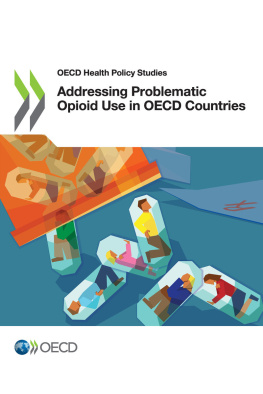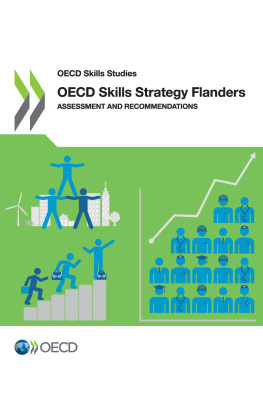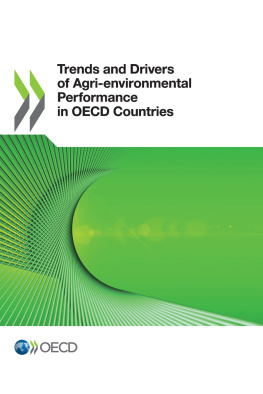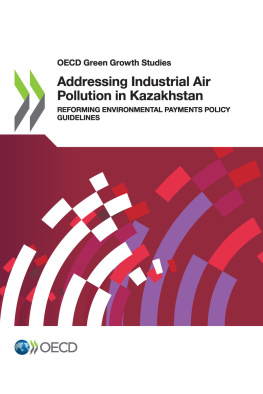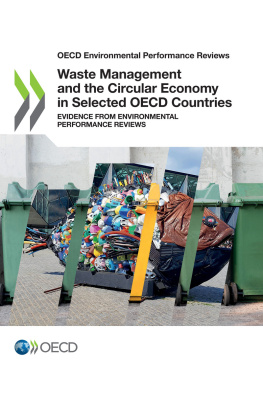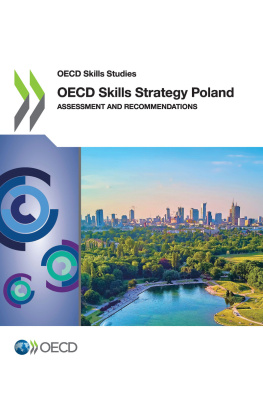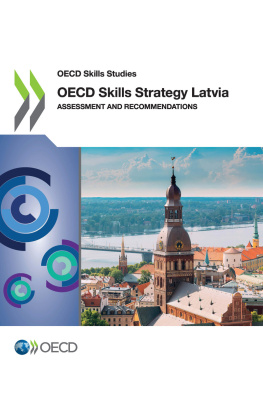OECD - Addressing Problematic Opioid Use in OECD Countries
Here you can read online OECD - Addressing Problematic Opioid Use in OECD Countries full text of the book (entire story) in english for free. Download pdf and epub, get meaning, cover and reviews about this ebook. year: 2019, publisher: OECD Publishing, genre: Politics. Description of the work, (preface) as well as reviews are available. Best literature library LitArk.com created for fans of good reading and offers a wide selection of genres:
Romance novel
Science fiction
Adventure
Detective
Science
History
Home and family
Prose
Art
Politics
Computer
Non-fiction
Religion
Business
Children
Humor
Choose a favorite category and find really read worthwhile books. Enjoy immersion in the world of imagination, feel the emotions of the characters or learn something new for yourself, make an fascinating discovery.
Addressing Problematic Opioid Use in OECD Countries: summary, description and annotation
We offer to read an annotation, description, summary or preface (depends on what the author of the book "Addressing Problematic Opioid Use in OECD Countries" wrote himself). If you haven't found the necessary information about the book — write in the comments, we will try to find it.
OECD: author's other books
Who wrote Addressing Problematic Opioid Use in OECD Countries? Find out the surname, the name of the author of the book and a list of all author's works by series.
Addressing Problematic Opioid Use in OECD Countries — read online for free the complete book (whole text) full work
Below is the text of the book, divided by pages. System saving the place of the last page read, allows you to conveniently read the book "Addressing Problematic Opioid Use in OECD Countries" online for free, without having to search again every time where you left off. Put a bookmark, and you can go to the page where you finished reading at any time.
Font size:
Interval:
Bookmark:
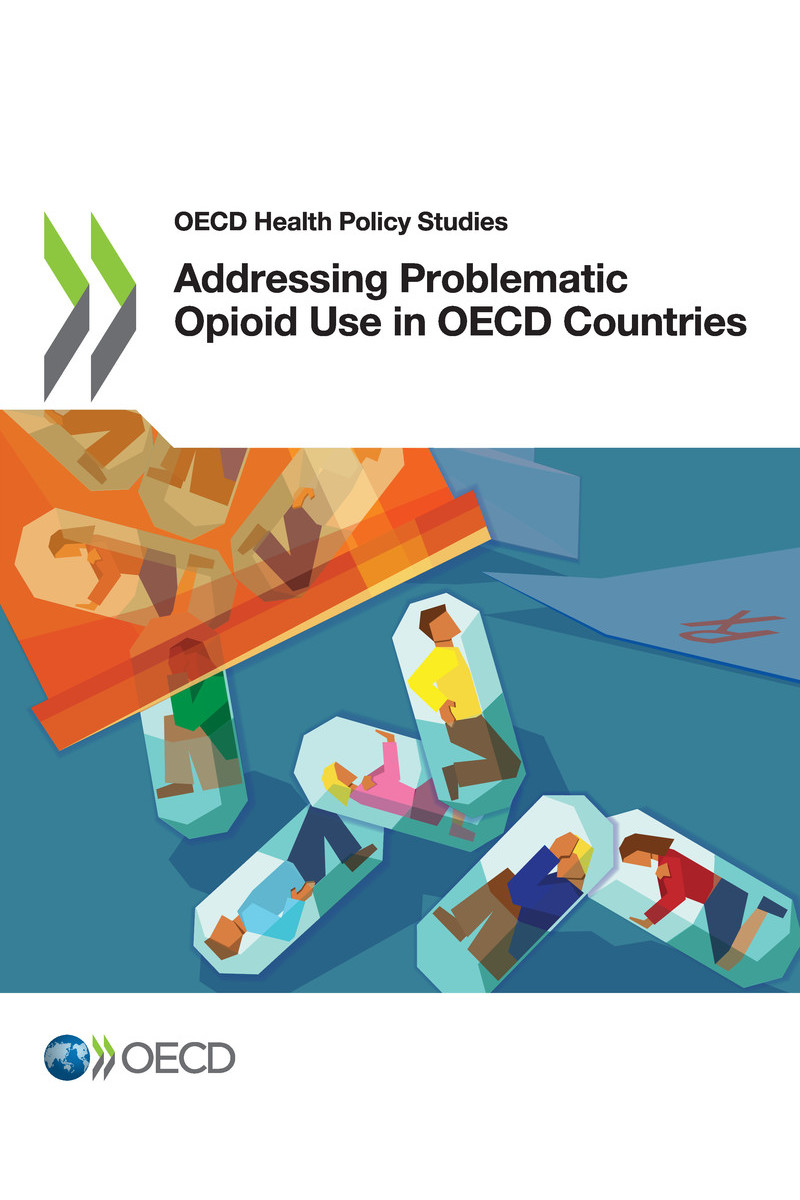
OECD (2019), Addressing Problematic Opioid Use in OECD Countries , OECD Health Policy Studies, OECD Publishing, Paris, https://doi.org/10.1787/a18286f0-en .
This report was commissioned by Health Canada with the aim of mapping out countries current stance in terms of opioids use, both legal and illegal, and to review evidence about the existent policies to prevent and reduce associated negative consequences. In addition, other member countries expressed their interest in the topic due to past experience or current problematic situations.
This is the first project in the OECD Health Division devoted to the area of drug policy, particularly, including illicit substances. In particular, this report builds on the OECDs long-standing programme of work on the economics of public health, applying this extensive expertise to country-specific challenges.
Health systems across OECD are increasingly under pressure from emerging or re-emerging health challenges, along with growing citizens demand for strong public health responses. In the area of drug policy, the latter requires a particular focus on multisectoral actions and coordinated efforts. The report presents data on the magnitude of the problem across OECD countries, describes the main drivers of the crisis, and identifies a set of policy actions within health systems, social policy and law enforcement sectors, with strong health information systems and better research as policy levers. It highlights best practice examples that allow learning from shared experiences and the spreading of innovative approaches.
The preparation and writing of this report was co-ordinated by Cristian A. Herrera. Elinor Wahal (currently at the Paris Institute of Technology) draw together the policy analysis on Section 4 and Sachin Silva (currently at the Harvard School of Public Health) developed a part of the data analysis in Section 3. Michele Cecchini supervised the work of the report.
The OECD would like to acknowledge Health Canada as the institution that commissioned this report. The team would like to thank all the country delegates and experts for their responses to the data and policy questionnaires, comments on the drafts, and suggestions at various stages of the project. In particular, during the meeting of the OECD Economics of Public Health Working Party of 15-16 October 2018, and the OECD Health Committee meeting of 5-6 December 2018.
The authors would like to especially acknowledge the generous support and collaboration from colleagues at the European Monitoring Centre for Drugs and Drug Addiction (EMCDDA), in particular, Isabelle Giraudon, Jane Mounteney, Andr Noor, and Julian Vicente. In addition, Stefano Berterame from the International Narcotics Control Board (INCB), Angela Me from the United Nations Office on Drugs and Crime (UNODC) and Jordi Llinares from the European Medicines Agency (EMA) contributed with information and expertise to this report. The report also benefited from the knowledge, material and comments received from Sylvie Desjardins (Public Health Agency of Canada), Lynelle Moon (Australian Institute of Health and Welfare), Robert N. Anderson (Centers for Disease Control and Prevention, US), Donald MacPherson (Canadian Drug Policy Coalition), Alexander Walley (Boston University, US), Robert L. Dupont (Institute for Behaviour and Health, US), Sallie Pearson (University of New South Wales, Australia), Cathy Stannard (NHS Gloucestershire CCG, UK), Aliona Kurbatova (National Institute for Health Development, Estonia), Thomas Clausen (University of Oslo) and Martin White (Public Health England). Furthermore, we truly thank Pain Alliance Europe and the patients who kindly accepted to share their experience and expertise with us in the context of the project. Neither they nor their institutions are responsible for any of the opinions expressed in this report.
At the OECD, the authors wish to thank Ruth Lopert, Thomas Rapp, Francesca Colombo, Mark Pearson and Stefano Scarpetta from the Directorate of Employment, Labour and Social Affairs (ELS), all of whom provided relevant contributions through their numerous comments and viewpoints. We thank Marissa Plouin and Willem Adema from the Social Policy Division of ELS, and Michael Morantz and Jack Radisch from the Directorate of Public Governance for their important input to take a more intersectoral approach in the report. Thanks also go to Duniya Dedeyn, Lukasz Lech, Hannah Whybrow and Isabelle Vallard for their valuable administrative support, and to Lucy Hulett, Liv Gudmundson, Marie-Clmence Canaud, Spencer Wilson and Paul Gallagher for the editorial and media assistance. The report was copy-edited by Tracey Strange.
Over-prescription of pain killers by doctors has contributed to a growing problematic opioid use in parts of the OECD with a surge in overdose deaths in the United States, Canada, Sweden, Norway, Ireland and parts of the United Kingdom pointing to a mounting health and social crisis fuelled by the illicit drugs trade.
The inappropriate use of opioids has hit diverse groups of the population, showing that a broad approach is needed to reach all the people at risk. Better treatment, care and support for people with use disorders to legal and illegal opioids (OUD) and better support for communities blighted by opioid dependence are vital at a time when opioid prescriptions and illicit sales by drug gangs are rising. Better and more closely monitored prescription by doctors and use of alternatives for dealing with chronic pain are also key to address the crisis. Awareness of the risks of the opioid crisis is growing but is relatively low outside countries where the crisis is most pronounced, such as the United States and Canada.
Font size:
Interval:
Bookmark:
Similar books «Addressing Problematic Opioid Use in OECD Countries»
Look at similar books to Addressing Problematic Opioid Use in OECD Countries. We have selected literature similar in name and meaning in the hope of providing readers with more options to find new, interesting, not yet read works.
Discussion, reviews of the book Addressing Problematic Opioid Use in OECD Countries and just readers' own opinions. Leave your comments, write what you think about the work, its meaning or the main characters. Specify what exactly you liked and what you didn't like, and why you think so.

